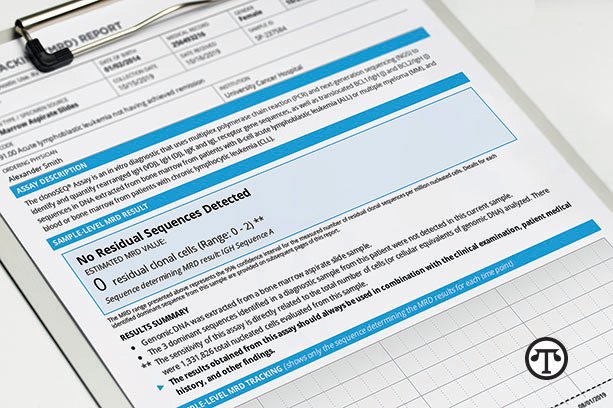What Blood Cancer Patients Need To Know

(NAPSI)—If you or someone you know has ever had blood cancer, a term you might have heard is “minimal residual disease,” or MRD. MRD refers to the small number of cancer cells that can stay in the body during and after treatment. Often, these cells are present at such low levels they do not cause any physical signs or symptoms. However, they may be a sign that cancer is returning.
As one of the strongest predictors of patient outcomes in blood cancer, MRD status can help you and your doctor understand how your body is responding to treatment and how it may change over time. When your MRD status shifts, you may find that the course of your blood cancer journey changes as well.
clonoSEQ® is an FDA-cleared test used to detect MRD in bone marrow from patients with multiple myeloma or B-cell acute lymphoblastic leukemia (B-ALL) and blood or bone marrow from patients with chronic lymphocytic leukemia (CLL). Testing is ordered by your doctor and performed by a licensed lab. clonoSEQ can detect very low levels of MRD—one cancer cell among a million cells (provided sufficient sample input)—so you and your doctor can be confident in your MRD status and prepared to act quickly if the cancer returns.
Talk to your doctor. If you have a blood cancer, talk with your care team about your MRD status to pinpoint where you are with your disease and develop a plan that works for you. To find a specialist and learn more, visit clonoSEQ.com and ask your doctor if clonoSEQ MRD testing is right for you.
Routine MRD testing may help detect the return of cancer before physical signs and symptoms arise. Knowing your MRD status can help you move forward with confidence when planning for all of life’s moments.
clonoSEQ is available by prescription use only. For more important information about the FDA-cleared uses of clonoSEQ, including sample types and test limitations, visit clonoSEQ.com/technical-summary.

“Routine minimal residual disease (MRD) testing may help detect the return of cancer before physical signs and symptoms arise. Knowing your MRD status can help you move forward with confidence when planning for all of life’s moments.http://bit.ly/3rWRsMy“
